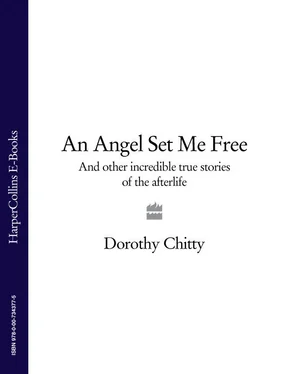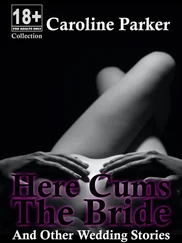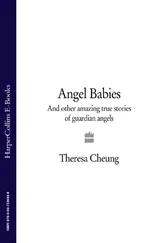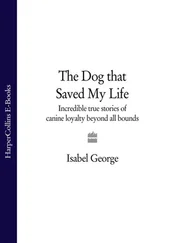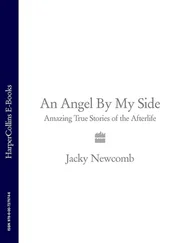‘Everyone says he will be all right,’ Carol sniffed through her tears.
‘No, he won’t,’ I told her matter-of-factly.
She gasped. ‘You’re being horrible!’
‘But he’ll be all right once he dies,’ I said, ‘because he will be an angel and he’ll be with you all the time then.’
She asked me about angels—what they look like and how you talk to them and seemed reassured by my answers, that you can’t always see them but that they talk to you in your head. I told her to tell her daddy that she loved him because I could sense she was a little scared of him and had never actually said those words before, and she promised she would.
Not long afterwards, Carol’s father passed away and she and I became very close friends for the rest of our time at that school. But I was beginning to realise that it is better not to tell people bad news most of the time. You can help a lot more by passing on nice messages rather than negative ones.
When I was young, Mum and Dad seemed quite accepting when I told them I talked to God and saw angels. ‘You’re a very lucky girl,’ Dad said once. But I think the whole family was disturbed when I started passing on messages from my Uncle Charlie, who committed suicide by sticking his head in the gas oven when I was ten. (He wasn’t a proper uncle, but a family friend we knew by that name.)
When Charlie first appeared to me, his tongue was sticking out and his face was contorted just as it must have been in the moment of death, but I wasn’t scared for one moment. It felt totally normal. Charlie told me that he had killed himself because he’d found out that his new wife was leaving him for someone else and he just couldn’t face life without her, but he wanted the rest of the family to know that he was fine now. He came back with love rather than hatred or resentment. He was a gentle man, a caring soul.
We often went for Sunday lunch at the home of Charlie’s mother, who we called Granny Watts, and Charlie would give me messages to pass on while we were sitting over our roast. I think it made the grownups round the table very uncomfortable.
Things really flared up, though, after a nun at school accused me of cheating. I had written something that my brown-suited friend ‘God’ told me was the correct answer to a question. After the nun read it, she charged over and hit me across the head.
‘Where have you copied this from?’ she demanded. ‘These words are too adult, these are not your words.’
‘No,’ I said, ‘they’re God’s words.’
The nun looked down at me with her podgy face close to mine. ‘Read my lips,’ she snarled. ‘You cannot hear God. It is not possible.’
I got a good hiding that day, and it was reported to my parents that I was cheating at my schoolwork and disrupting the class with my cheeky answers when challenged. Next thing I knew I was being marched off for an appointment with a psychiatrist.
The psychiatrist was an austere man with dark hair and glasses, who kept firing questions at me and scribbling notes on his pad. I looked down and there, in front of his desk, was a little blond boy who told me his name was Peter. He was a very pretty-looking child and seemed to have a glow about him. He told me the psychiatrist was his father. He had died of leukaemia the previous year and mentioned that his dad had put a little teddy in his coffin. ‘Tell my daddy I’m here,’ he said, so I did.
‘What on earth are you talking about?’ the psychiatrist snapped, so I described what Peter looked like and all the details he had told me about his death, including the teddy bear. The psychiatrist was very taken aback but asked me some questions to pass on to Peter and soon I was passing information between them quite naturally.
Finally, the doctor said to my parents:’There’s nothing wrong with this girl. She’s got ESP.’
I had no idea what he meant and asked if it was catching, which made the adults laugh.
‘You’ve got a special gift,’ the psychiatrist told me. ‘You can talk to people who are dead. But you mustn’t tell anyone because other people don’t have it.’
I was only ten at this time, but as I entered my teens I realised his advice was good. If anybody found out I could talk to spirits, they would nag me the whole time, wanting me to contact their dead grandmothers or beloved pets or whatever. I just wanted to be a normal teenager, accepted for who I was and not labelled as ‘weird’ or ‘different’. I was interested in fashion and boys—although being at a girls-only school I had little access to the opposite sex.
When I left school, I went to college to study fashion design and started making my own clothes. It was the early 1960s, and fashion college was an exciting place to be. One day I was crossing the road, wearing a white swing coat with two big black buttons that I had designed myself, when a car drove up and bumped into me, nudging my leg.
I leapt back and yelled, ‘You idiot! What are you trying to do?’ I recognised the driver as a young man I had seen in a jazz club but had never been introduced to.
‘I’m trying to get to know you,’ he said, grinning.
‘Well, that’s not the way to do it,’ I snapped and stormed off.
A few weeks later I was in a coffee bar with some friends when the same guy walked in. Before I could say anything, one of my friends called out to him. ‘Hey Mike! Dorothy needs a lift home. You’ll take her, won’t you?’
The guy who had been supposed to take me hadn’t turned up so I reluctantly accepted a lift from Mike, but as we drove home I made sure he knew that I had another boyfriend with whom I was due to go out that evening. I introduced him to my parents and left them chatting as I got changed and rushed out for the evening with my boyfriend. Imagine my surprise when I got home in time for my ten o’clock curfew to find Mike still there, still talking to Mum and Dad, obviously getting on with them like a house on fire.
I stopped, listened to my feelings, and realised that despite the way we had first met, I liked and trusted this guy. Although at that stage in my life I had turned away from my connection with spirit, I always had strong instincts about whether people were good or not, and he definitely was. Six months later we were married, and we had our son Carl in 1963, then our daughters, Nicky in ‘64 and Tanya in ‘66.
As a young mother I was kept very busy, working as a freelance dress designer as well as running our household. I’d told Mike about my psychic abilities, but the world of spirit wasn’t something I had much time to think about. Then in 1972, my mother was taken ill with a severe cold and rushed to hospital. I drove up to visit her. She asked me to come close to her and she whispered, ‘I don’t think I’m going to make it this time.’ I couldn’t bear to hear it and said, ‘No, Mum, you’re wrong, you will make it.’ The next morning I was getting ready for work when a voice in my head told me that she was going to die the next day. It even told me the time—eleven o’clock.
In my shock, I dismissed it. ‘Go away,’ I thought. ‘I don’t want to hear this. It can’t be true.’
I had to work that day but I rang the hospital first thing and they told me Mum was absolutely fine—quite perky, in fact. And then at quarter past eleven I got the dreaded call to say that she had died very suddenly. I was filled with fierce anger. How could someone so good be taken? Having been warned in advance didn’t help at all. In fact, I was angry with the spirits who had warned me and I pushed them all away in my grief.
I should have known that Mum would come back to me in spirit. Of course she would. The following year, when we were staying with my parents-in-law, I woke up in the night with an unbearably sharp pain in my chest, finding it extremely difficult to breathe. I’d never experienced anything like it in my life and was convinced I was dying but there was Mum’s voice in my head, saying softly, ‘Don’t worry. You’ll be OK.’ I was rushed to hospital where they found I’d had a pulmonary embolism—a blood clot in the lungs. The doctors told Mike it would be touch and go whether I made it through the next twenty-four hours.
Читать дальше
